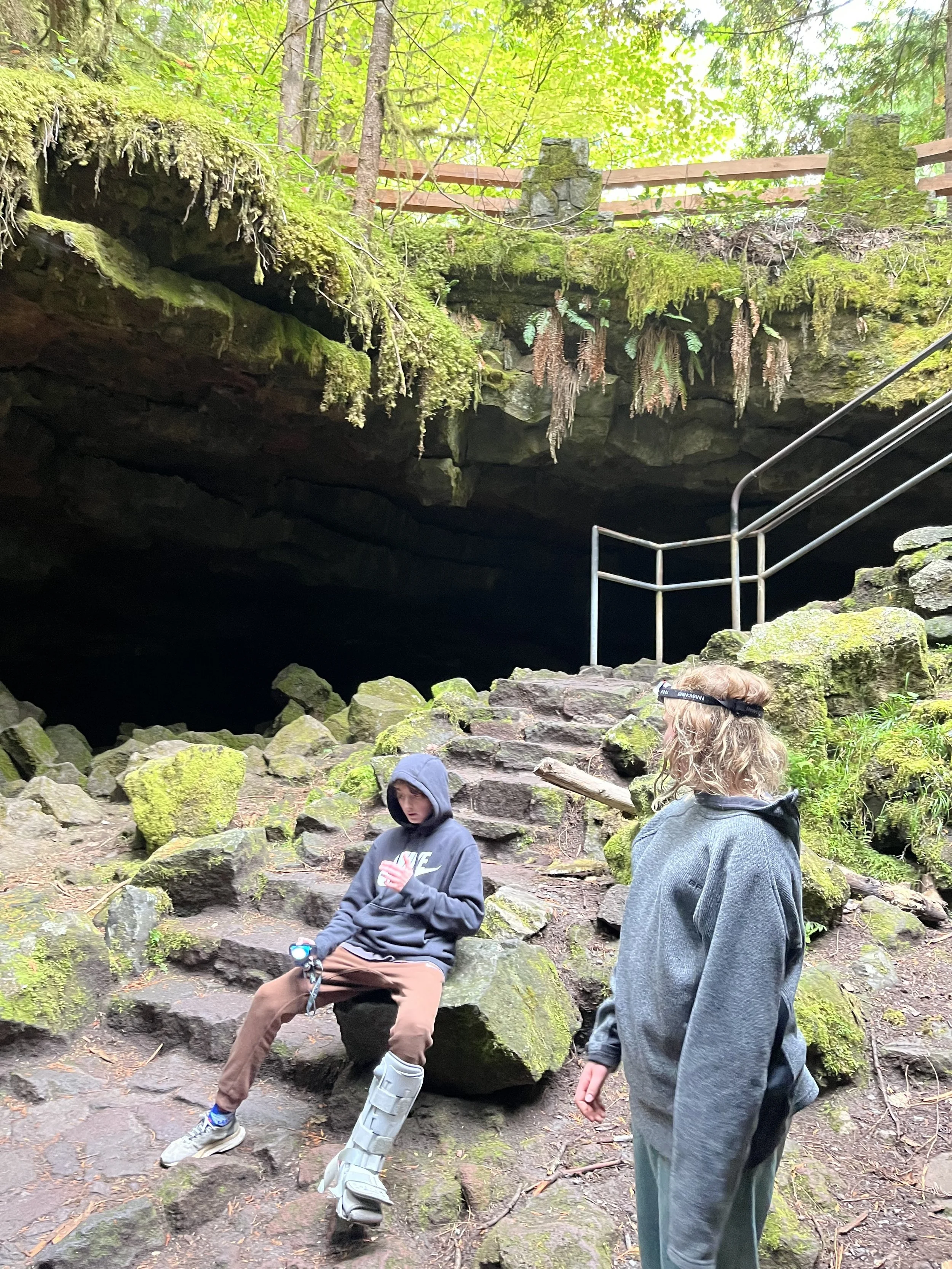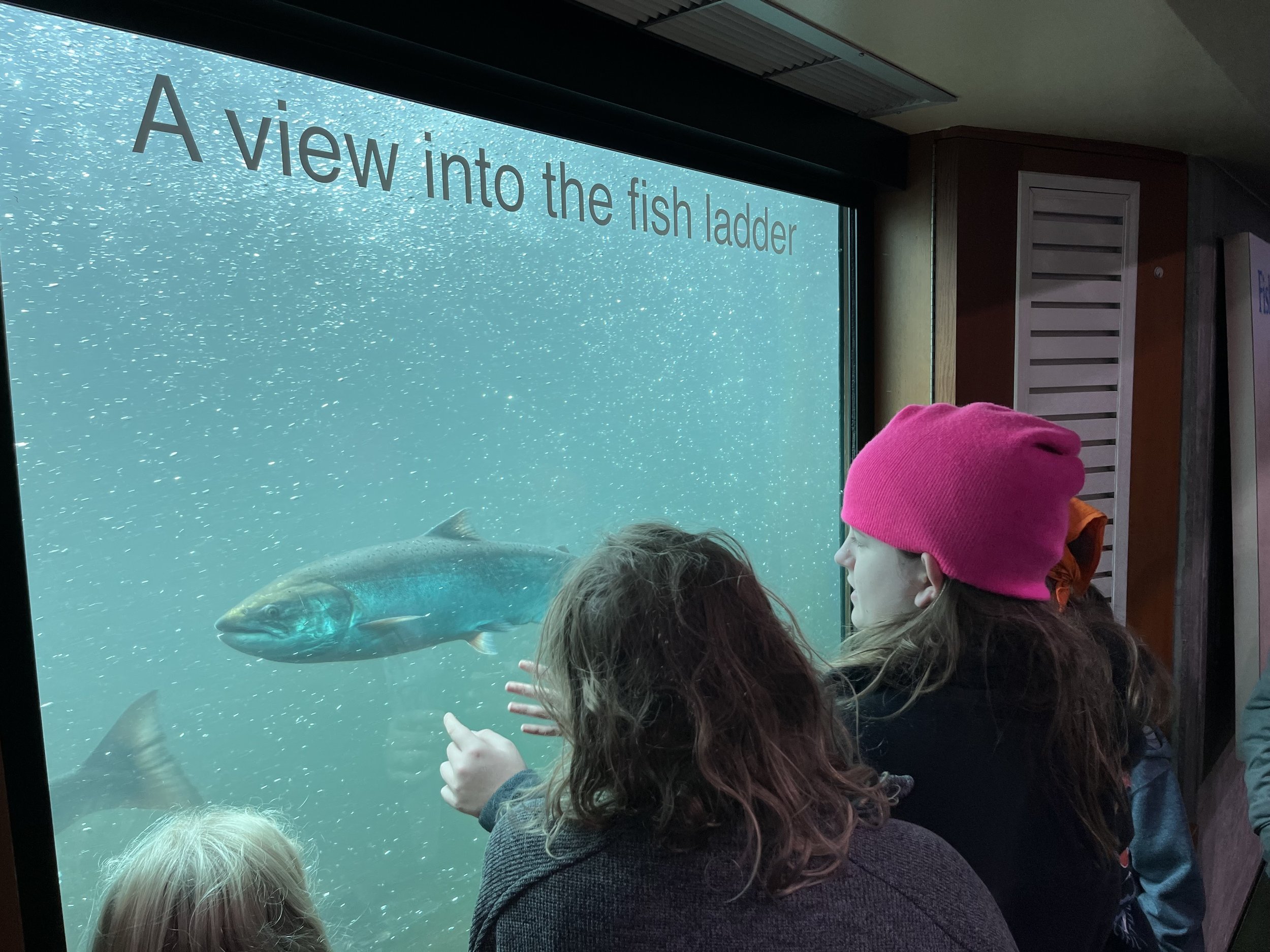Building Community and Exploring Nature: Our Middle School Camping Trip to Gifford Pinchot National Forest
This year, our middle school students embarked on a memorable adventure to Gifford Pinchot National Forest, and it was so much more than just a school trip. With a science focus on biology, the temperate coniferous forest provided a perfect backdrop for exploring nature’s diversity, engaging them in field journaling—a practice of deep observation. In service to the practice of being field scientists, this experience fostered community, independence, and resilience in ways that traditional classroom learning simply cannot.
Our camping trip stands out from typical school trips because it requires students to rely on each other to make everything happen. Every task is a shared responsibility, from setting up tents and planning meals to cooking and cleaning up. This is a real-time, hands-on lesson in independence—students learned to manage themselves and manage their belongings—as they pushed through challenges, from the physical labor of setting up camp to the unexpected setbacks that come with outdoor life. The trip offered new experiences designed to expand their perspectives, build life skills, and—perhaps most importantly—cultivate a positive class culture. In this setting, we saw each other at our best and our worst, and that vulnerability created strong bonds within the group.
One of the trip highlights was the students’ visit to Ape Caves, an adventure they’ll describe as "type 1 fun," which they defined as fun at the moment and remembered as fun after. On the other hand, their fieldwork with Cascade Forest Conservancy at Cold Creek introduced them to "type 2 fun"—it wasn’t necessarily enjoyable then. Still, looking back, they found it rewarding and fulfilling. Navigating the off-trail trek to the creek, collecting data, and bushwhacking their way back to the road tested their endurance and teamwork. The sense of accomplishment was palpable.
Evenings around the campfire, sharing stories, were moments of connection and reflection. In these quiet, unstructured times, students found the space to reflect on the small comforts they often take for granted—like indoor plumbing! The absence of flush toilets and hot showers gave everyone a new appreciation for conserving water and the everyday luxuries of home. With no potable water at the campsite, students had to adapt to using just five gallons per meal while being mindful of their impact on the natural environment and respecting quiet hours before 8 AM.
Throughout the trip, students were immersed in the beauty of the natural world, engaged in meaningful fieldwork, and deepened their relationships with each other. The stories they created together—whether exploring caves, observing wildlife, or simply cooking dinner—are unique to them. These shared experiences will become the glue that binds this class together, creating memories that will last long after they return home.
Ultimately, the trip to Gifford Pinchot was more than just an academic excursion. It was a journey of self-discovery, community building, and environmental stewardship. Our students came away not only with a greater understanding of biology but with life skills, memories, and a deeper connection to each other and the world around them. This experience makes the middle school years at The Marylhurst School truly special.
















